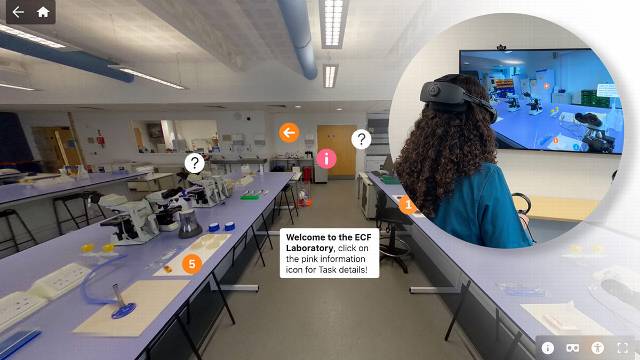
Undertaking a placement year allows students to take a chance and try a career in a field they may never have thought of before. Such was the case for Harper Adams alumnus Neil Manchester who, when studying his agricultural technology degree, decided to take a chance in the field of aquaculture.
Coming from a background in dairy and sheep farming, Neil initially came to Harper Adams seeing the institution as "a good entry point into farm management". However, while studying, Neil realised that the cycles of sheep farming were not quite what he had anticipated and began to look for alternative career paths.
Having only previous experience in pleasure angling, Neil took it upon himself to enter into a six month placement on a trout farm in Scotland at the start of his sandwich year. At the time, fish farming was in its infancy, pioneering for change in a field previously unexplored.
That six month period shaped Neil's future career, seeing him return to Scotland upon the completion of his degree and enter into a growing industry. He said: "the developments have been an exciting adventure. In the 1990s I specialised in Atlantic salmon breeding and juvenile production, and that led to my company being bought by Hendrix Genetics in 2011 as their first venture into aquaculture." From there, Neil worked his way up the ranks, being appointed managing director of Hendrix, relocating to the headquarters in the Netherlands.
From this, Neil applied his agricultural knowledge to the development of the business, seeing how a demand for fish protein was rapidly increasing in relation to a decline in wild catch fish. Speaking about the potential of aquaculture, Neil said: "We are in the midst of an aquacultural revolution, taking technologies developed in agriculture over the last 50 years and applying it to fish species in the a much shortened period.
"Aquaculture has the potential to grow from 80 million tonnes annual production today to over 130 million tonnes by 2030, and offers the best solution to the growing protein gap as the world’s population increases. The earth’s surface is 71 per cent water, but it only generates 2 per cent of our food today. Technology in all aspects of aquaculture has developed hugely, and the opportunities to expand production in many hundreds of species in many regions of the world are numerous.
"We have developed breeding operations all over the world so I mix with diverse cultures every day, whether its salmon breeding in Scotland and Chile, trout breeding in USA, South America and Isle of Man, or shrimp breeding in Hawaii, Ecuador, Malaysia, India and Vietnam. Every day brings opportunity and growth, new connections and always something new to learn."
This changing environment was everything Neil wanted from his degree and more, where the opportunities to pioneer change were not repeated year on year. Thus, his advice to current students is, "Don't try and follow a blueprint, share your career based on your heart, not just you head. An old shepherd once told me, 'Live like you will die tomorrow, but farm like you will live forever' and that's what I strive to do."
To find out more about our placement opportunities, see our Placement page here.
 Blog: Veterinary Medicine students step into immersive 360° laboratory
At Harper & Keele Veterinary School, students are stepping beyond the traditional microbiology bench and into an immersive 360° labo …
Posted
Yesterday
Blog: Veterinary Medicine students step into immersive 360° laboratory
At Harper & Keele Veterinary School, students are stepping beyond the traditional microbiology bench and into an immersive 360° labo …
Posted
Yesterday





